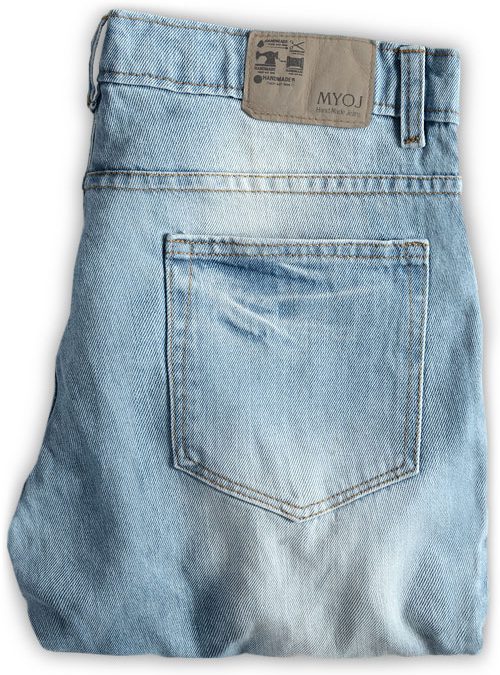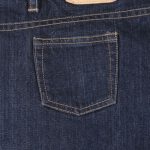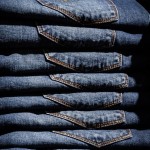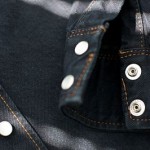Are you thinking about buying a new pair of stonewashed jeans? With their naturally distressed appearance, stonewashed jeans have become a popular alternative to traditional jeans. They are manufacturing using distressing techniques, such as scraping and stone blasting, to achieve a worn-in style. While all stonewashed jeans are distressed, though, some of them are different than others. Below is a beginner’s guide on how to choose the right pair of stonewashed jeans.
Do Look for Whiskers
You should look for whiskers when choosing stonewashed jeans. Whiskers are synonymous with nearly all styles of distressed jeans — and stonewashed jeans are no exception. Whiskers consist of patterns or marks of fading. When stonewashed, jeans will develop these whiskers in areas such as the thighs and knees. The presence of whiskers is a surefire way to distinguish between stonewashed and traditional jeans.
Some of the most common types of whiskers for stonewashed jeans include the following:
- Honeycomb: consists of horizontal lines that resemble the shape of whiskers
- Stacks: wide bands of fading that are typically found around the ankles
- Train tracks: fading patterns around the seams that, as the name suggests, look like train tracks.
Don’t Buy Used
Avoid buying a used pair of stonewashed jeans. Instead, invest in a new pair. While some stores only sell new jeans, others sell used jeans as well. The problem with buying a pair of used jeans is that you really don’t know what to expect. Maybe the previous owner neglected his or her jeans, or perhaps the jeans are torn or damaged beyond the point of repair. Regardless, you’ll get more value out of new stonewashed jeans.
Do Go With 100% Cotton
Another tip to follow when shopping for stonewashed jeans is to go with 100% cotton. Jeans, of course, are made of denim. A denim construction is a defining characteristic of all types of jeans. With that said, there are different types of denim. Some denim is made of 100% cotton, whereas other types of denim consist of cotton mixed with organic or synthetic fabrics. With stonewashed jeans, 100% cotton will result in a softer texture. Stonewashed jeans are distressed during production, so you want them to be soft. You can choose a pair of soft stonewashed jeans by opting for 100% cotton.
Don’t Overlook the Weight
Don’t make the mistake of overlooking the weight of stonewashed jeans. The weight of a pair of stonewashed jeans may vary. Some of them are heavier than others. Why does the weight matter exactly? The weight of stonewashed jeans will ultimately determine their durability. If a pair of stonewashed jeans is lightweight, they may succumb to damage. Simply wearing the lightweight stonewashed jeans for multiple consecutive days may damage them. To get more use out of them, you need to choose stonewashed jeans with a relatively heavy weight.
How much should a pair of stonewashed jeans weigh exactly? A good rule of thumb is to choose stonewashed jeans that are made of at least 12 ounces of denim. Doing so will result in a relatively heavy weight that increases their durability.
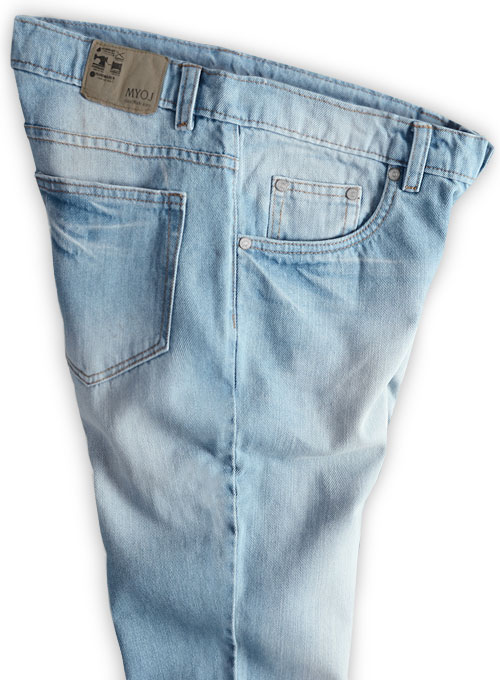
Do Inspect the Distressing
You should inspect the distressing when choosing stonewashed jeans. All stonewashed jeans are distressed. Distressed jeans are characterized by signs and wear and tear, which are intentionally added to them during production. Stonewashed jeans are a specific type of distressed jeans that, as the name suggests, involve the use of stones during production. Nonetheless, some stonewashed jeans are more distressed than others. If you’re going to invest in a pair of stonewashed jeans, you should take a minute to inspect the distressing.
Don’t Choose the Wrong Size
A common mistake people make when buying stonewashed jeans is choosing the wrong size. They may end up buying stonewashed jeans that are a size or too big or too small. Regardless, you probably won’t get much use out of a pair of stonewashed jeans if they are the wrong size. Oversized stonewashed jeans may fail to stay on your waist when worn. Undersized stonewashed jeans, conversely, may fit too tight, resulting in discomfort when worn. You can avoid these headaches by choosing a pair of custom-sized stonewashed jeans.
Do Look for Metal Buttons
Stonewashed jeans are available in different types of buttons. You can typically find buttons around the fly. The material from which these buttons are made, however, may vary. Some stonewashed jeans have plastic buttons, whereas others have metal buttons. Of those two types of buttons, metal is the best all-around choice. Metal buttons are stronger and more durable than plastic buttons. With metal buttons, you won’t have to worry about them breaking or cracking. They’ll last a long time while maximizing the value of your stonewashed jeans.
Don’t Overlook the Hem
Don’t make the mistake of overlooking the hem when buying stonewashed jeans. The hem, of course, is the bottom of the pant legs. It’s the bottommost part of the stonewashed jeans. Some stonewashed jeans have a traditional hem that, like with other jeans, consists of a clean edge. You can find stonewashed jeans with alternative hem types, though. Selvedge stonewashed jeans, for example, have a more complex hem. The bottom of the pant legs has a band of denim fabric that’s folded up a few inches and sewn into place. This alternative hem type helps to protect the denim at the bottom of the jeans from damage.
Do Choose a Universal Color
Finally, you should consider choosing stonewashed jeans in a universal color. Blue is the most common color in which all jeans are made. Whether you’re shopping for a standard pair of jeans or a pair of stonewashed jeans, you can probably find them in blue. But there are other colors from which you can choose. Stonewashed jeans are available in dozens of colors besides blue. You can choose one of these alternative colors; just remember to make sure it’s a universal color that will match the garments with which you wear your new stonewashed jeans.

